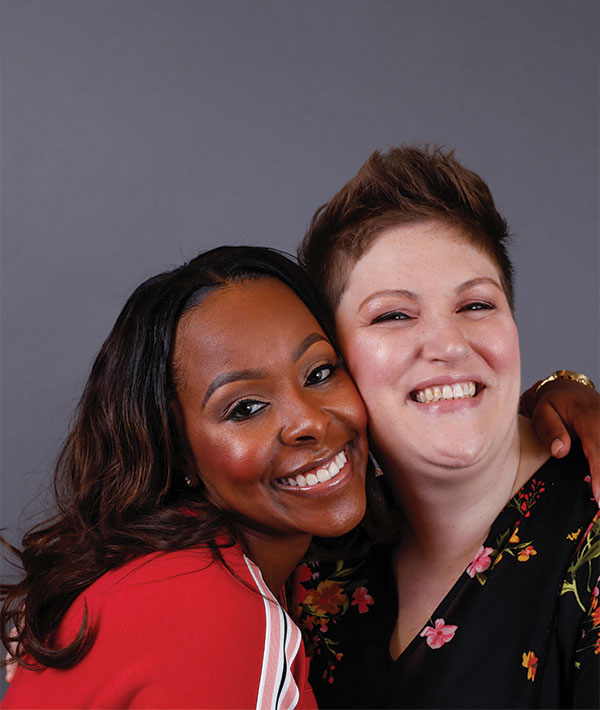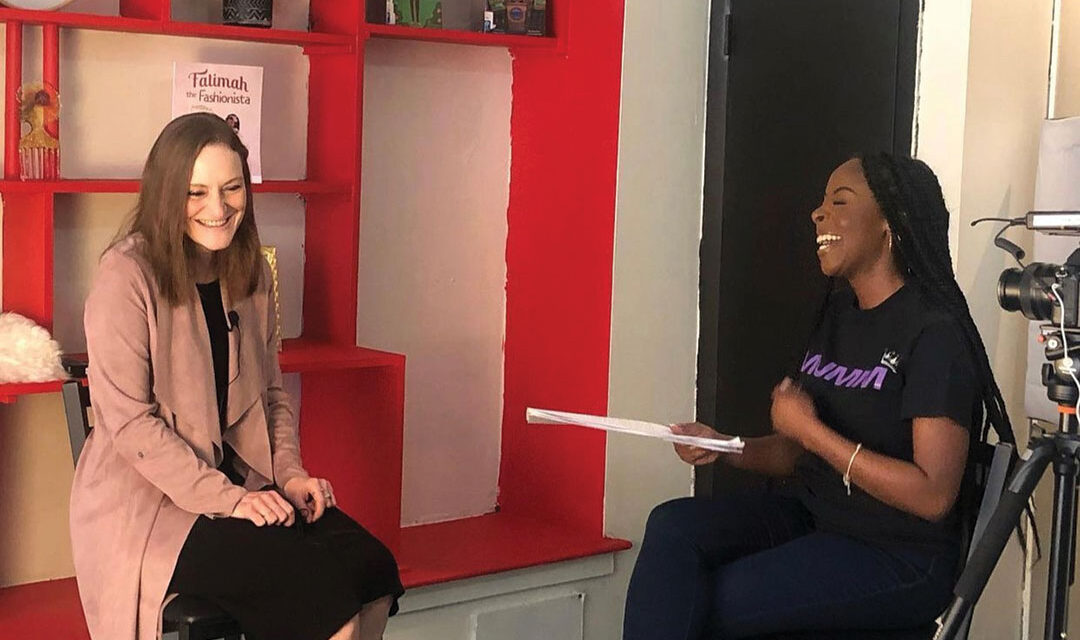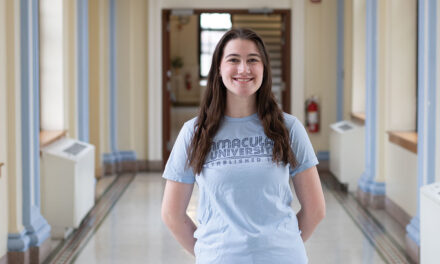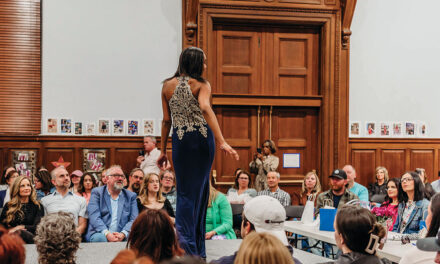In previous decades, if you were diagnosed with breast cancer, it was often a death sentence, says Immaculata University graduate Nia Imani Bailey ’14, DPA, M.A.Ed., RT(T). According to WebMD, the overall five-year relative survival rate for breast cancer was 90% in 2022. This means 90 out of 100 women are alive five years after being diagnosed. During the 1950s, the five-year survival rate was only 60%. Although great progress has been made, approximately 43,700 women still die from the disease every year—and 1,000 of them are younger than 40.
Bailey wrote and directed a film for this younger population, “A Letter To My Sisters: A Breast Cancer Documentary For Young Women.”
As a radiation therapist at Christiana Care for eight years, Bailey has witnessed the devastating effects of breast cancer in younger women. The youngest female patient that she treated was 24 years old. Bailey explains that this patient had metastatic breast cancer that spread to her brain and lungs. She died about a month after being diagnosed.

Nia Imani Bailey (left) with her friend Jaclynn Smith.
There would be others who did not survive, including a 33-year-old patient, Jaclynn Smith, who became a close friend of Bailey’s. Smith was diagnosed with an advanced form of breast cancer that also spread to her brain.
“I don’t think I realized that she was going to pass away,” Bailey admits. “But it wasn’t until she died that I said I need to create something that educates women.” As a result, she started working on her documentary.
“A Letter To My Sisters: A Breast Cancer Documentary For Young Women” is a 50-minute testament to breast cancer awareness. It chronicles the journey of three young, female patients of various ethnicities and predispositions for breast cancer whom Bailey treated. These three survivors are in their 20s, 30s and 40s, much younger than the average age of a breast cancer patient (62).
Bailey explained that “young” means younger than the recommended mammogram age of 40, when most health insurance plans typically cover this life-saving procedure. However, Bailey cautions women not to wait for a mammogram if they notice something suspicious.
“That’s the whole point, knowing your body,” Bailey said. “The sooner that you catch it, the better.” She also wants women to advocate for themselves when it comes to their health. She has heard many stories of women who noticed or felt a lump, but their medical provider shrugged it off or said it was just a cyst or said the patient was too young to have breast cancer. “Say to the doctor, ‘Hey, I know my body. I’m with me every day,’” she advised.
Even though Bailey encourages women to speak up for themselves, she realizes that confidence is something that many women need to work on. When she came to Immaculata from a small high school, she appreciated the opportunities to build relationships with her professors, which made it easier to speak up in class or take a differing opinion on a topic. Being able to engage in her classes helped build self-confidence that spread to other aspects of her life. It is this confidence that women need to develop when advocating for their health and treatment plan.
Bailey knew she wanted a career in medicine but wasn’t interested in nursing. Once she enrolled in Immaculata’s allied health program with a concentration in radiologic science, she instantly knew she made the right decision. The program allows students to attend lmmaculata for three years while completing the allied health curriculum. Then, in the students’ senior year, they attend one of lmmaculata’s partner institutions for the clinical training they need to complete their bachelor’s degree. In Bailey’s case, she matriculated to Thomas Jefferson University to study radiation therapy. Going from a small Catholic university to a much larger institution, Bailey felt prepared and confident. She then continued her education, earning a Master of Education from La Salle University and a doctorate in public administration from West Chester University.
“In college, you’re becoming the adult. You’re away from your parents and you’re finding your way, and I think lmmaculata definitely helps put you on the right path to where you want to be.”
For Bailey, finding the right path includes continuing to tell the stories of Janique, Brenda and Lynne and the countless others who are diagnosed with breast cancer every year. After premiering the documentary in October 2022, Bailey has screened the film at locations in Delaware and Philadelphia. “A Letter To My Sisters: A Breast Cancer Documentary For Young Women” has already accomplished its goal of reaching young women. Now, Bailey wants officials to see her documentary so that they can help revise policies.
One way to help is to change the recommended mammogram age, since insurance companies strictly adhere to that guideline. Currently, if a woman in her 30s wants a mammogram, she has to “jump through hoops” to get it approved through her health insurance or pay for it out-of-pocket. “I would hope that when officials see the documentary, they say, ‘Hum, 40? …maybe 40 shouldn’t be the recommended age. Maybe it should be 30, or maybe we don’t even need a recommendation,’” she muses.
Even if one person is helped by the film, it’s all worth the effort.






